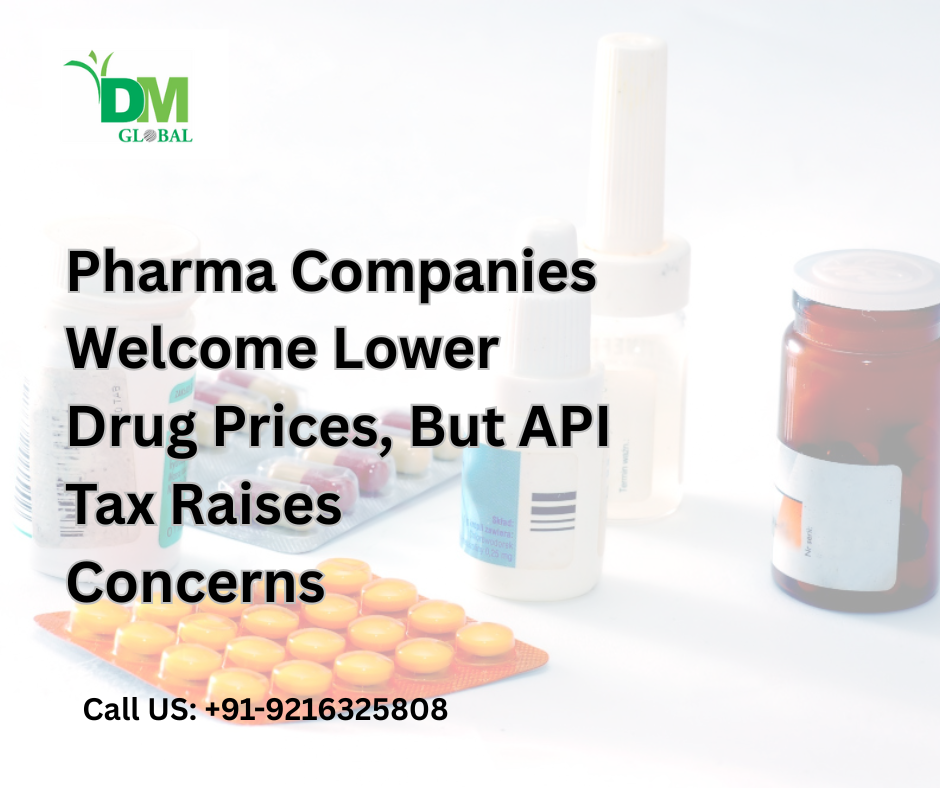This reform concerns the Indian pharmaceutical industry. Pharma companies and healthcare professionals have appreciated the new changes in the Goods and Services Tax (GST) structure that the government has implemented. The decision will help lower the costs of treatment to patients through decreasing GST on a variety of high-cost medicines, and will relieve businesses that find it difficult to stay afloat.
Cheaper Medicines: A Big Relief for Patients
The families of India usually consume a very big portion of their earnings in health care. Medications are prohibitively expensive to individuals with chronic illnesses, including cancer, diabetes, or heart disease. The government has made treatments cheaper by lowering the GST on expensive medicines.
The given change does not only help patients but the health care system in general. Many more individuals can now afford life saving drugs without much concern about price. In the case of businesses, the reduced GST also implies that the business is able to provide medicines at competitive prices and therefore are able to reach a wider array of customers and increase their market share.
The API Tax Gap: A Hidden Challenge
While the reduction in GST on finished medicines is being celebrated, the industry is worried about the higher tax on APIs. APIs are the most important part of medicine manufacturing, and India depends heavily on imports for them.
Provisional Refunds: A Way to Reduce Pressure
To address these concerns, experts have suggested provisional refunds for companies that pay higher taxes on APIs. If refunds are processed smoothly, firms will recover some of their blocked funds and reduce working capital stress.
This step would especially support smaller companies that operate on limited budgets. With better financial flexibility, these firms can focus on expanding their operations, improving quality standards, and reaching more patients.
Strengthening India’s Global Image
India is already known as the “pharmacy of the world” for its affordable and quality medicines. By cutting GST on expensive drugs, the country strengthens this reputation even further. Lower drug prices will not only help local patients but also make Indian medicines more attractive in global markets.
This move also signals to international investors that India is serious about promoting ease of doing business in the healthcare sector. The simplified tax structure could encourage more foreign partnerships, collaborations, and investments in research and innovation.
For companies specializing in niche areas, such as a monopoly medicine company in India, the reform offers smoother operations and greater opportunities to bring unique products to underserved regions.
Role of Contract Manufacturing in the New Framework
Contract manufacturing is another (not the least) sector that will experience the effects of these GST reforms. A pharma contract manufacturing company is a crucial part of mass production, so pharma brands can outsource production and concentrate on research and marketing.
Demand of contract manufacturing is likely to increase with lower GST rates on the medicines. To satisfy increasing demand in the market, Pharma companies will seek partners that can manufacture medicines efficiently at low costs. Nonetheless, unless the API tax problem is resolved, even contract manufacturers can incur increased costs, which can be passed down the supply chain.
Balancing Opportunities and Challenges
The GST reforms bring both opportunities and challenges for the pharmaceutical sector.
Opportunities:
-
Lower medicine prices make treatments more affordable.
-
Stronger global reputation for Indian pharma.
-
Improved ease of doing business.
-
Growth in exports and foreign investments.
Challenges:
-
Higher GST on APIs may block working capital.
-
Small companies may struggle more than large ones.
-
Risk of reduced innovation if funds remain tied up.
To fully realize the benefits of GST reforms, the government needs to address these challenges. Measures like harmonizing GST rates or ensuring quick refunds can create a fair balance between patient welfare and industry growth.
Looking Forward
The pharmaceutical industry has welcomed the government’s decision to reduce GST on medicines. Patients will now have easier access to treatments, and companies will face fewer barriers in offering affordable drugs. But at the same time, concerns around API taxation cannot be ignored.
If the government finds a solution to this issue, the reforms could create a win-win situation for everyone — patients, businesses, and the economy. Whether it is a monopoly medicine company in India or a pharma contract manufacturing company, all players in the industry stand to benefit from a balanced and supportive tax framework.
Conclusion
The GST reforms are the right step towards the healthcare and pharmaceutical sector in India. They directly benefit the welfare of patients by making medicines more affordable. Meanwhile, the interests of the industry regarding API taxation show that some additional improvements are necessary.
These reforms may make the pharma industry in India competitive in the global market, and more conducive to innovation with appropriate changes. This is promising but only when the government and industry collaborate to make sure it is affordable and sustainable over time.
FAQs
Q1. How will lower GST on medicines help patients in India?
Lower GST will make many expensive medicines more affordable, helping patients reduce their treatment costs, especially those with chronic or long-term diseases.
Q2. What is the API tax gap in the pharmaceutical sector?
The API tax gap refers to the difference between the GST rate on Active Pharmaceutical Ingredients (APIs) and finished medicines. This gap can block working capital for pharma companies.
Q3. Why are pharma companies concerned about higher API taxes?
Higher taxes on APIs increase upfront costs for companies, especially small and mid-sized ones, which can limit their ability to invest in research, production, and expansion.
Q4. What role do contract manufacturing companies play in pharma?
A pharma contract manufacturing company handles large-scale drug production for pharma brands, allowing them to focus on research, marketing, and distribution.
Q5. Will lower GST improve India’s global pharma reputation?
Yes, reducing GST on medicines strengthens India’s image as a supplier of affordable, quality drugs, boosting exports and attracting foreign investments.

